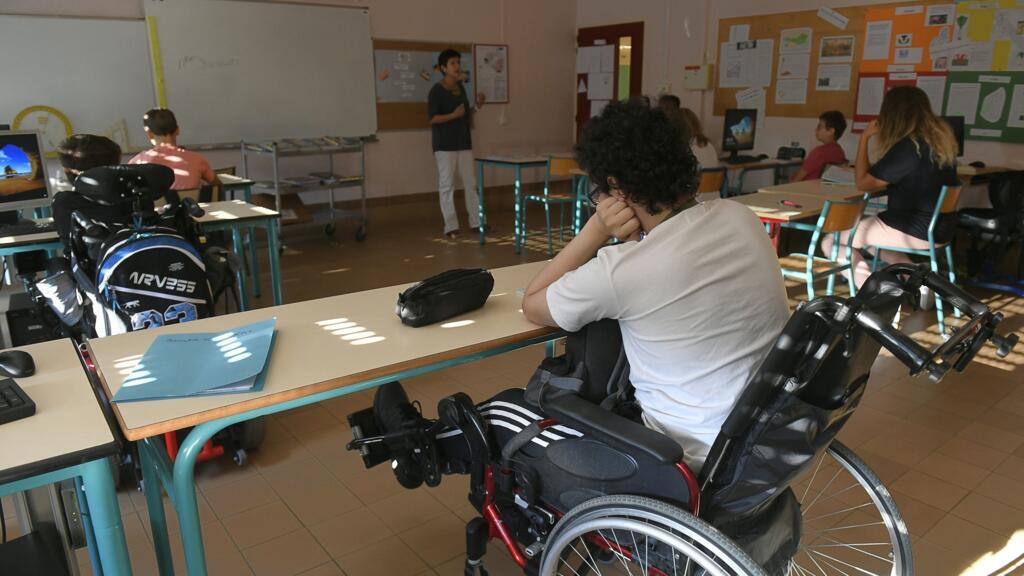
France’s 12 million pupils returned to school this week, and among them are 520,000 children with disabilities. This is the highest number to date – a sign of progress 20 years after a law strengthened disability rights. But rights groups say much more needs to be done to achieve a fully inclusive system.
France’s 2005 Disability Act gives every child with a disability the right to enrol in their local mainstream school.
Since then, the number of children with disabilities in school has increased fivefold.
"Families feel empowered to think that their child doesn't necessarily only have a future in the medical-social sector, but could also have a future in their local school," Nicolas Églin, president of the National Federation of Associations Serving Students with Disabilities, told RFI.
But the education system still relies on a dual model: mainstream schools, which must take all pupils, and specialised schools, often run by medical-educational institutions.
Back to school: new rules for pupils and an uncertain future for education minister
'Solutions that do not meet needs'
While more disabled children are entering mainstream schools, there are still big gaps in support.
“There is a lot of variation in the quality of care, with solutions that do not meet needs, and children attending mainstream schools when they would be better off in a medical-educational institute,” said Sonia Ahehehinnou, vice-president of disability rights network Unapei.
Unapei surveyed its 38 member associations, representing more than 3,600 children. It found only 19 percent of disabled pupils receive more than 12 hours of schooling a week.
Thirty percent receive between six and 12 hours, 38 percent less than six hours, and 13 percent have no hours at all.
Some 70,000 children with disabilities remain in medical-educational institutions, where access to schooling is often harder. These are mostly children with multiple conditions or intellectual disabilities.
Gaps in provision
A new report from Collectif Handicaps – a coalition of 54 disability rights organisations – said: “Many children with disabilities continue to have to adapt to the system, rather than the other way around.”
The report pointed to gaps in adapted teaching materials. In the 2022/2023 school year, 18,682 pupils had no access to resources such as Braille books or tablets. Some waited up to a year, leaving families to cover the cost themselves. Campaigners said this worsens inequalities.
France struggles to decide what place screens should have in schools
The report found that children with disabilities are more likely to drop out of school early, while for those who complete their schooling, career guidance is lacking.
"Students with disabilities often face significant difficulties when approaching this decisive period. They question their abilities and the careers that will be accessible to them. The Information and Guidance Centres are not trained in disabilities," the report said.
The report concluded that mainstream schools remain ill-equipped to guide disabled students into further education or work. “Inclusive schooling means that mainstream schools must be able to meet all the specific needs of children,” said Églin.
"We still have a lot of work to do to ensure that medical and social work professionals are much more involved in schools and that the norm is a mainstream school education for everyone."
This article has been adapted from the original version in French.







